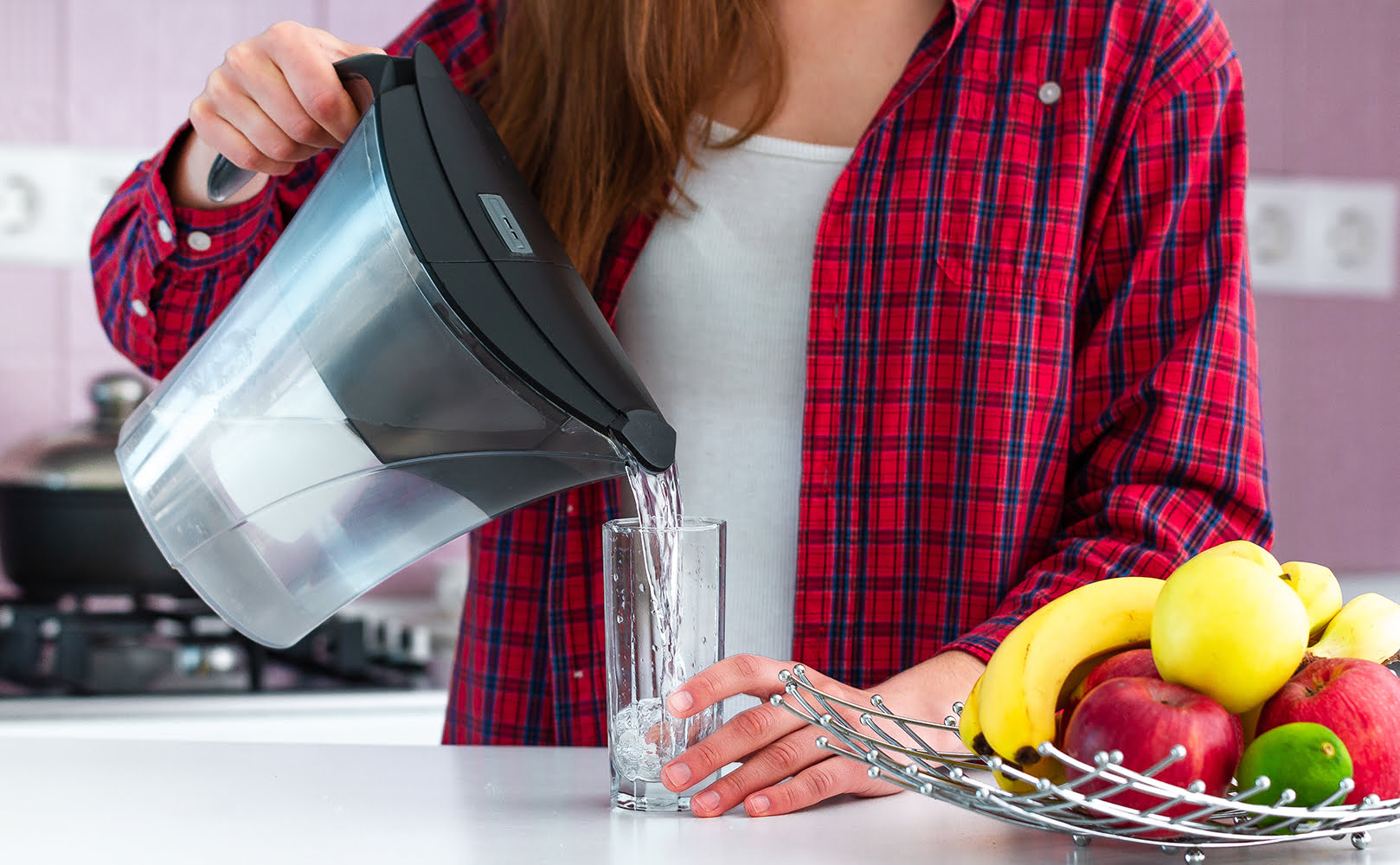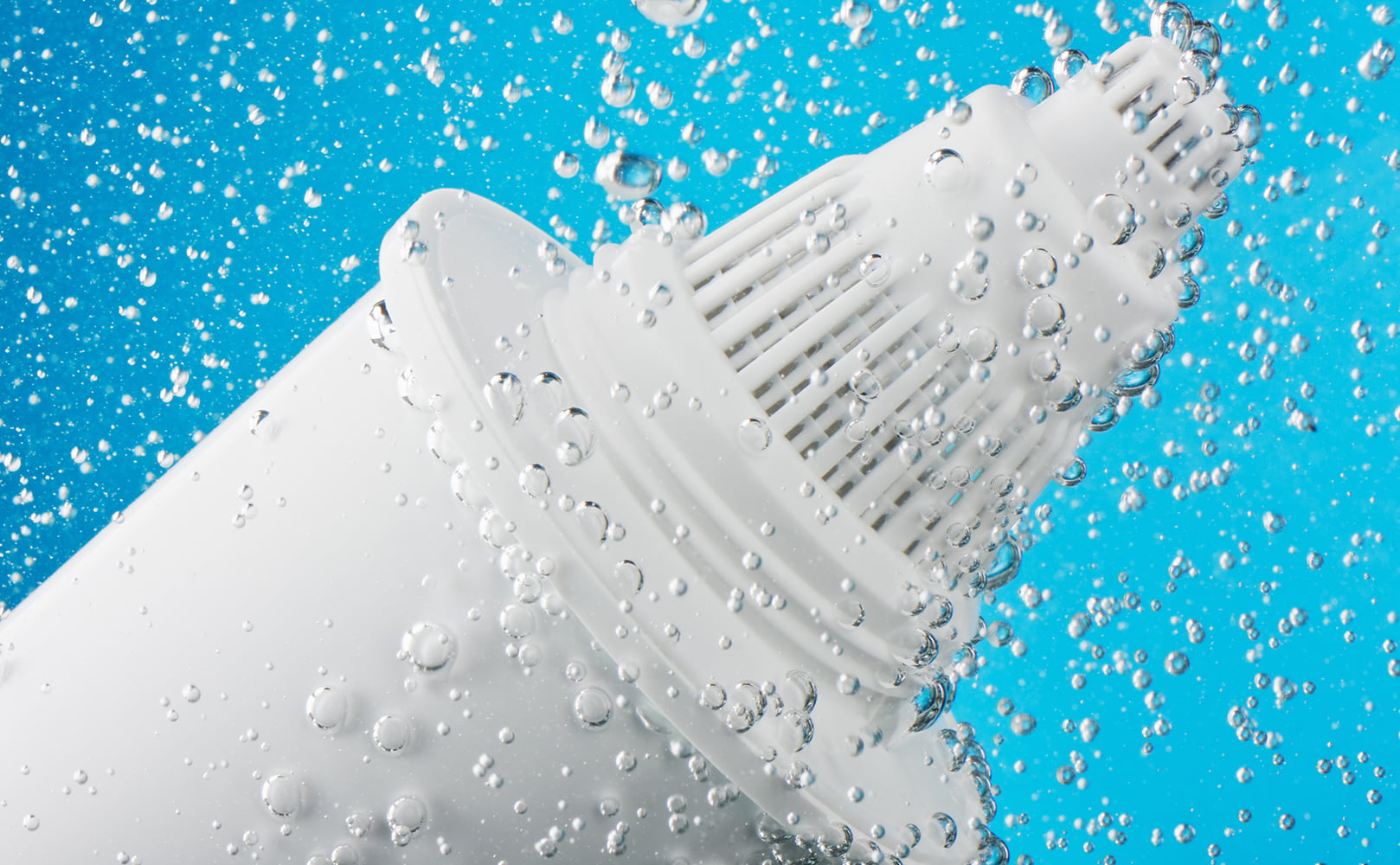Where to Buy a Water Filter Pitcher
Written by: Gene Fitzgerald // Last Updated: Jan 4, 2023
This page may contain affiliate links. If you buy a product or service through such a link we earn a commission at no extra cost to you. Learn more.
People looking for a way to filter their water without breaking the bank should consider water filter pitchers. There are plenty of options, but it can be difficult to decide which one is right for you. When it comes to finding a pitcher, where do you start?
We’ve got the answer you’re looking for right here.
We will discuss the different options you have when purchasing a water filter pitcher, as well as the pros and cons of each, and the factors you need to consider when buying one.
Key Takeaways
There are 4 places to buy a water filter pitcher:
- Online: Directly from a brand/manufacturer – This is the best choice if you know what you want and for the lowest prices.
- Online: Large retailer – If you don’t have a specific product/brand in mind, large platforms like Amazon or eBay offer a wide variety of products, competitive prices, and even customer reviews for you to help evaluate a product.
- Local store – Great if you want a product instantly and don’t want to wait for delivery.
- Local water treatment expert – They will offer expert opinions on the right product for you as they are more familiar with the water conditions in your area.
Where to Buy a Water Filter Pitcher
There are many different places you can go to when it comes to buying a water filter pitcher. For instance, you could buy one online directly from the manufacturer, or from a marketplace. Or, if you’d rather not wait around for it to arrive, you can go directly to a store. There’s also water treatment experts that sell products they vouch for, which would assure you a high-quality purchase.
Each option has its pros and cons. Let’s go one by one to see what sets them apart:
Buying Online – Directly from a Brand or Manufacturer
When it comes to buying a specialty product, going directly to the source tends to be the best choice. Purchasing from the manufacturer will assure you a high-quality product, reduced prices, and expert assistance.
Since they need fewer employees than retail stores, manufacturer prices tend to be lower. They may also offer special discounts or packaged deals. In addition, they are known for having the best warranties and return policies.
As if that wasn’t enough, you usually get unmatched customer service since you are dealing with the makers directly.
One downside to this is that you can only check products from that specific brand. Although a lot of brands feature customer reviews on their websites, you can’t be sure that they aren’t biased. A brand could easily choose to hide the reviews that they don’t agree with.
Advantages
- Access to products exclusively sold by the brands.
- Lower prices thanks to buying directly from the manufacturer.
- Discounts on products are available.
- Often a higher-quality product than those found in huge marketplaces.
- Outstanding customer service and buying assistance.
- It is easier to file a warranty claim, and communication is direct.
Disadvantages
- The reviews on the websites could be fake.
- You are limited to a specific brand.
Buying Online – from a Large Marketplace
If you don’t have a specific brand or product in mind, online marketplaces are a good place to start. Marketplaces like Amazon or eBay have a large variety of products, great prices, and expedited shipping. They also tend to have advanced search tools that allow you to filter the results for specific features. You can also find customer reviews when shopping at online marketplaces, though these aren’t always reliable.
If looking at reviews, try avoiding the 1 and 5 stars and focus on the middleground, those tend to be more honest.
Last but not least, online marketplaces tend to have their own warranty terms, and while they usually allow you to return a product, they may charge a restocking fee.
Advantages
- You have a wide variety of options to choose from.
- Competitive pricing
- Marketplaces like eBay or Amazon offer buyer protection.
- Excellent search functionality allows you to find products with the specific features you want.
- Product reviews from customers
- Fast, dependable, and sometimes free shipping is available.
- A reasonable return policy, with some marketplaces giving you as much as 90 days.
Disadvantages
- Reviews could be fake.
- Some marketplaces have issues with counterfeits.
- Possibly low-quality products
- You could occasionally receive the wrong product.
- Restocking fees may apply if you return an item.
- Limited warranty options
Buying Offline – from Your Local Hardware or Big Box Store
If you don’t wait for a product to ship, or want to shop for more than just a water filter pitcher, visiting a local store is a great idea. At a store, you can find a wide variety of products, not just water filter pitchers. Stores also tend to have great prices thanks to their large sale volumes.
A downside of going to a store is that the staff there might not be very knowledgeable about the products you need, or they might be too busy to offer you assistance.
Advantages
- Competitive prices
Disadvantages
- Their products might not be of the greatest quality.
- Unlikely that customer service knows the products well.
- The latest models may not all be in stock.
- Limited warranty options
Buying Offline – from a Local Water Treatment Expert
If you can find a water treatment expert in your area, you can rest assured that the products they’ll offer will be top-notch. A local water treatment expert can also help you choose the right product because they are more familiar with the water conditions in the area.
However, this expertise comes at a cost, both literally and figuratively. Their products are usually more expensive, and their selection is also more limited. In addition, their warranty terms and return policies are not always the best.
Advantages
- Expert assistance
- A professional with a general understanding of the water situation in the region
- It’s easier to get support.
Disadvantages
- Limited selection of products
- Products tend to be more expensive.
What to Look for When Shopping for a Water Filter Pitcher
Before buying a water filter pitcher, you should take into consideration a few things in addition to the price. While they all serve the same general purpose, you’ll find that different brands have different levels of contaminant reduction, filtering capacity, or filtration speed.
Before buying a water filter pitcher, ensure it can meet your filtering needs by considering the following:
Contaminant Reduction
Most of the water filter pitchers out there use activated charcoal or carbon to filter out impurities, like chlorine, in order to improve your water’s taste and odor. If you are just looking for basic filtering or to have better tasting water, you don’t need a fancy filter pitcher.
However, if you are concerned about harmful contaminants in your drinking water, you’ll want a brand that can offer more thorough contaminant removal. For example, a Clearly Filtered water pitcher can take care of lead and chromium 6.
Before making a choice, you should have your water tested for contaminants to know what kind of pitcher you need.
NSF/ANSI Testing & Certifications
NSF/ANSI certifications and tests can work as a badge of approval when shopping for filter pitchers. When a water filter pitcher is certified for a specific protocol, you know that its contaminant reduction capabilities are the real deal.
- For instance, a filter pitcher certified for NSF/ANSI standard 42 is sure to reduce the level of chlorine in your water, leading to better smell and taste.
- If it’s certified for standard 53, it means it will remove contaminants like heavy metals, organics, and a wide variety of chemicals.
- Protocol P473 certifies a filter’s ability to remove PFOA and PFOS, while Standard 401 deals with herbicides, pesticides, prescription drugs, and other chemical compounds.
These certifications do not guarantee that a filter will completely remove a contaminant from your water, only that it will do so to a particular degree.
Water Storage Volume (Jug Size)
The water volume of a filter pitcher is measured in cups. You’ll typically find units ranging from 7 to 11 cups, which is around 0.44 to 0.69 gallons of water.
If you buy a filter pitcher with a small jug size, you’ll need to refill it more often. That’s not necessarily a big deal, unless you live in a house with a lot of people. Consider how much water your household needs on a daily basis before settling for a specific pitcher.
Filtration Speed
Some filters work faster than others, though filtering speed shouldn’t be your main concern. Proper water filtering takes time, and you don’t want a half-assed job. However, you don’t want a filter that takes forever either. For this one, check out customer reviews as well to get a sense of a unit’s filtering speed.
Water Filtering Capacity
One important aspect of filter pitchers is the usable life of the filter cartridge, since filter replacements are going to be your main maintenance cost when using.
On average, a filter pitcher’s cartridge should give you between 30 to 200 gallons of filtered water before it needs to be replaced, or about one to six months.
One brand might have cheaper filters, but that could be a moot point if you need to replace them too often.
You should also be wary about filter life indicators since they measure time rather than water usage, which could be misleading. It’s best to keep track of when you changed a filter and how much water you use over time.
BPA-Free Materials
You’ll want a water filter pitcher with 100% BPA-free materials, especially for the jug. Bisphenol A is commonly found in plastics, and it can leach into water over time. Check to see if your filter is BPA-free or if it is made of glass or Tritan plastic.
While the EPA has stated that BPA doesn’t need to be regulated, other studies have linked BPA in water and food to cancer and other nasty side effects.
Manufacturer Warranty & Cost
When it comes to water filter pitchers, usually it’s the cost of replacement filters that you need to be wary of. Look for models with good usable life, and a reasonable replacement cost for filters.
Furthermore, it’s better to buy a product with a great warranty coverage, such as a lifetime guarantee, or a trial period.
If you have any questions about where to buy a water filter pitcher please don’t hesitate to leave a comment below!
Information provided on BOS is for educational purposes only. The products and services we review may not be right for your individual circumstances.
We adhere to strict editorial guidelines. Rest assured, the opinions expressed have not been provided, reviewed, or otherwise endorsed by our partners – they are unbiased, independent, and the author’s alone. Our licensed experts fact-check all content for accuracy. It is accurate as of the date posted and to the best of our knowledge.



